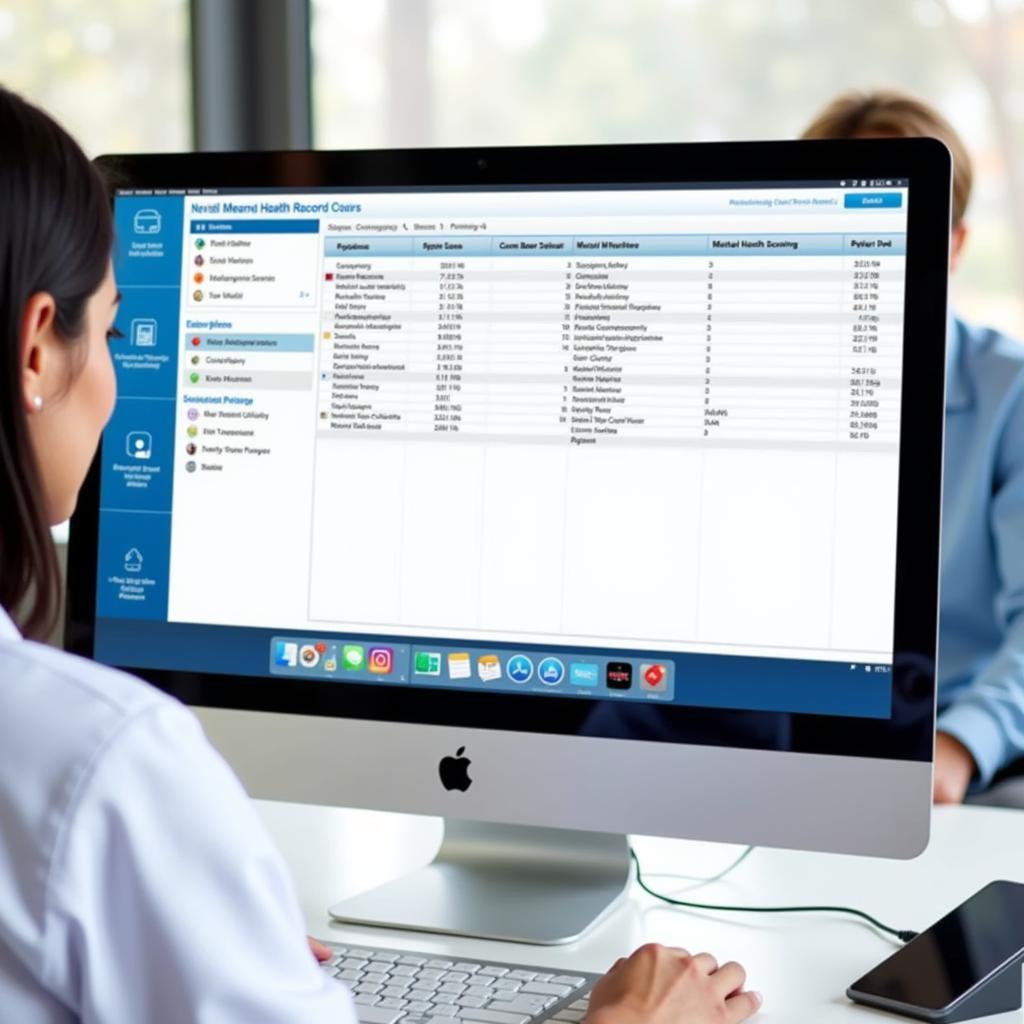Mental health is integral to overall well-being, and primary care settings offer a crucial opportunity for early identification and intervention. Screening Tools For Mental Health In Primary Care play a vital role in this process, enabling healthcare professionals to quickly and efficiently assess patients for potential mental health concerns. Within the first few minutes of a primary care visit, these tools can help determine if further evaluation is needed.
Early detection of mental health conditions in primary care is crucial for timely intervention and improved outcomes. Screening tools offer a standardized and efficient approach to assessing a patient’s mental well-being. These tools can help identify a range of conditions, including depression, anxiety, substance use disorders, and post-traumatic stress disorder (PTSD). Utilizing these tools allows primary care physicians to address mental health concerns proactively, ultimately improving patient care. These tools can also help to destigmatize mental health discussions by integrating them into routine check-ups. For more information on how screening tools are used in primary care, you can visit our resource on primary care mental health screening tools.
Common Screening Tools Used in Primary Care
Several validated screening tools are available for use in primary care settings. Some of the most common include the Patient Health Questionnaire (PHQ-9) for depression, the Generalized Anxiety Disorder 7-item (GAD-7) scale for anxiety, and the Alcohol Use Disorders Identification Test (AUDIT) for alcohol misuse. These tools are brief, easy to administer, and have been shown to be effective in identifying individuals who may benefit from further mental health evaluation.
Patient Health Questionnaire (PHQ-9)
The PHQ-9 is a widely used screening tool for depression. It consists of nine questions that assess the severity of depressive symptoms over the past two weeks. The PHQ-9 is a simple, yet effective tool that can be easily incorporated into routine primary care visits.
Generalized Anxiety Disorder 7-item (GAD-7) scale
The GAD-7 is a concise and effective tool for screening for generalized anxiety disorder. It consists of seven questions that assess the severity of anxiety symptoms over the past two weeks. The GAD-7 can help identify individuals who may require further evaluation and treatment for anxiety.
Alcohol Use Disorders Identification Test (AUDIT)
The AUDIT is a 10-item questionnaire that assesses alcohol consumption, drinking behaviors, and alcohol-related problems. This tool is useful in identifying individuals at risk for alcohol use disorders.
Benefits of Using Screening Tools
Implementing screening tools for mental health in primary care offers numerous benefits. Early identification of mental health concerns allows for prompt intervention, which can improve treatment outcomes and reduce the severity of symptoms. Additionally, screening can facilitate referrals to specialized mental health services when necessary. It can also help reduce the stigma associated with mental health by normalizing discussions about mental well-being in primary care settings.
Improved Patient Outcomes
Early detection and intervention can significantly improve patient outcomes. By identifying mental health concerns early on, healthcare providers can initiate appropriate treatment, potentially preventing the progression of symptoms and improving overall quality of life. For a look at validated tools used in various healthcare settings, check our resource on validated assessment tools primary care.
Enhanced Care Coordination
Screening tools can facilitate better care coordination between primary care physicians and mental health specialists. This collaborative approach ensures that patients receive comprehensive and integrated care for both their physical and mental health needs. If you’re interested in understanding different levels of mental health care, you can find more information on level of care assessment tool mental health.
Integrating Screening into Primary Care Workflow
Successfully integrating screening tools into primary care workflows requires careful planning and implementation. Training staff on how to administer and interpret the results of screening tools is essential. Establishing clear protocols for follow-up and referral is also crucial. Additionally, incorporating electronic health record (EHR) integration can streamline the screening process and facilitate data collection and analysis. Learn more about tools used in behavioral care management on our dedicated page about behavioral care management tools for health care.
“Integrating mental health screenings into primary care should be as routine as checking blood pressure,” says Dr. Sarah Miller, a leading expert in primary care integration. “It’s a fundamental step towards addressing the widespread prevalence of mental health conditions.”
 EHR system displaying mental health screening results with patient data
EHR system displaying mental health screening results with patient data
Conclusion
Screening tools for mental health in primary care are invaluable resources for early identification and intervention. These tools empower healthcare professionals to address mental health concerns proactively, ultimately improving patient outcomes. By integrating these tools into routine practice, primary care providers can play a crucial role in promoting overall well-being and reducing the burden of mental illness. The use of screening tools for mental health in primary care is a critical step towards ensuring that individuals receive the timely and appropriate care they need.
“Early detection can truly make a world of difference,” adds Dr. Miller. “It’s not just about treating illness; it’s about empowering individuals to live healthier, more fulfilling lives.” Thinking of conducting a self-diagnosis on your vehicle? Check out our guide on self diagnostic car tool.
Need support? Contact us via WhatsApp: +1(641)206-8880, Email: [email protected] or visit us at 910 Cedar Lane, Chicago, IL 60605, USA. Our customer service team is available 24/7.

Leave a Reply